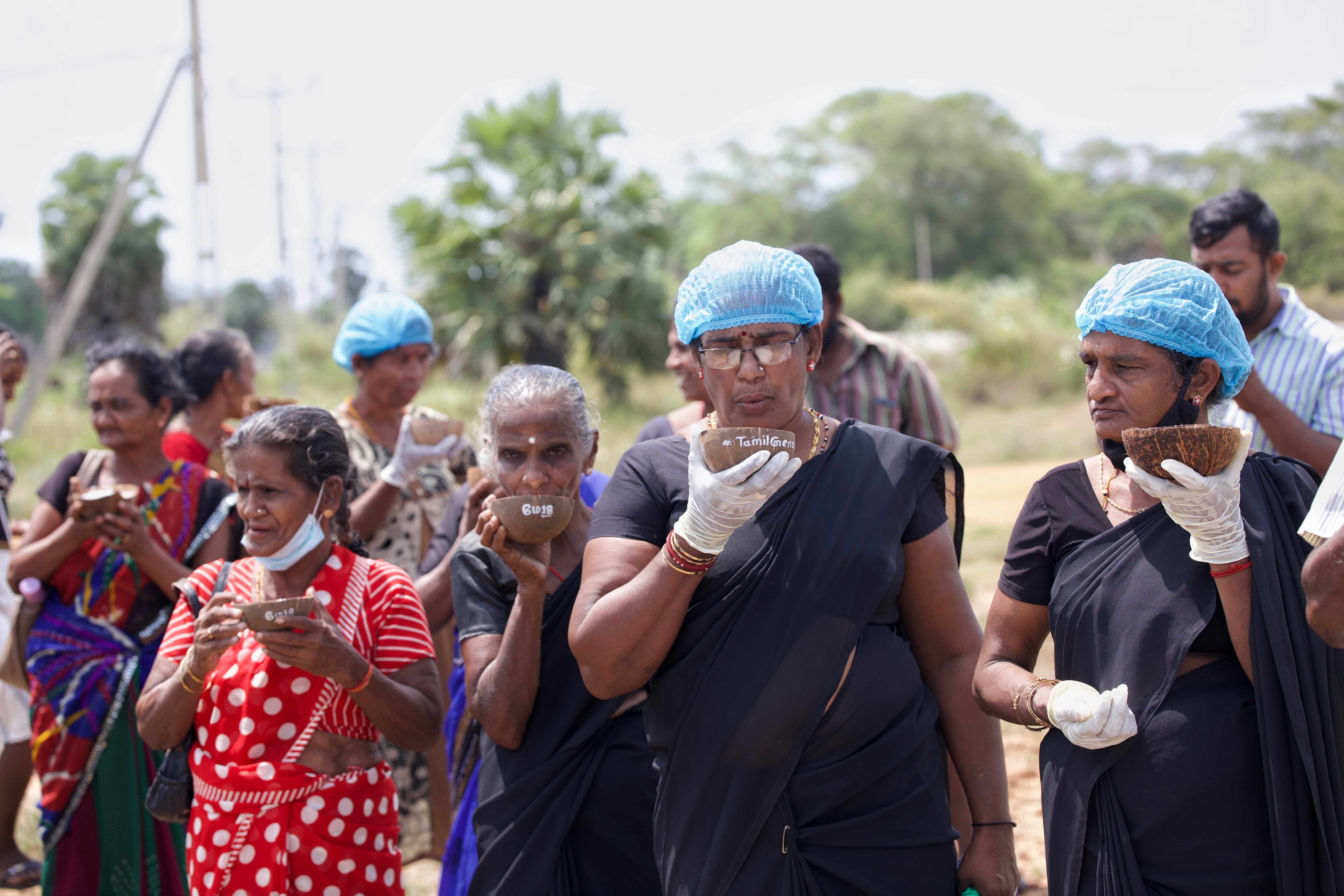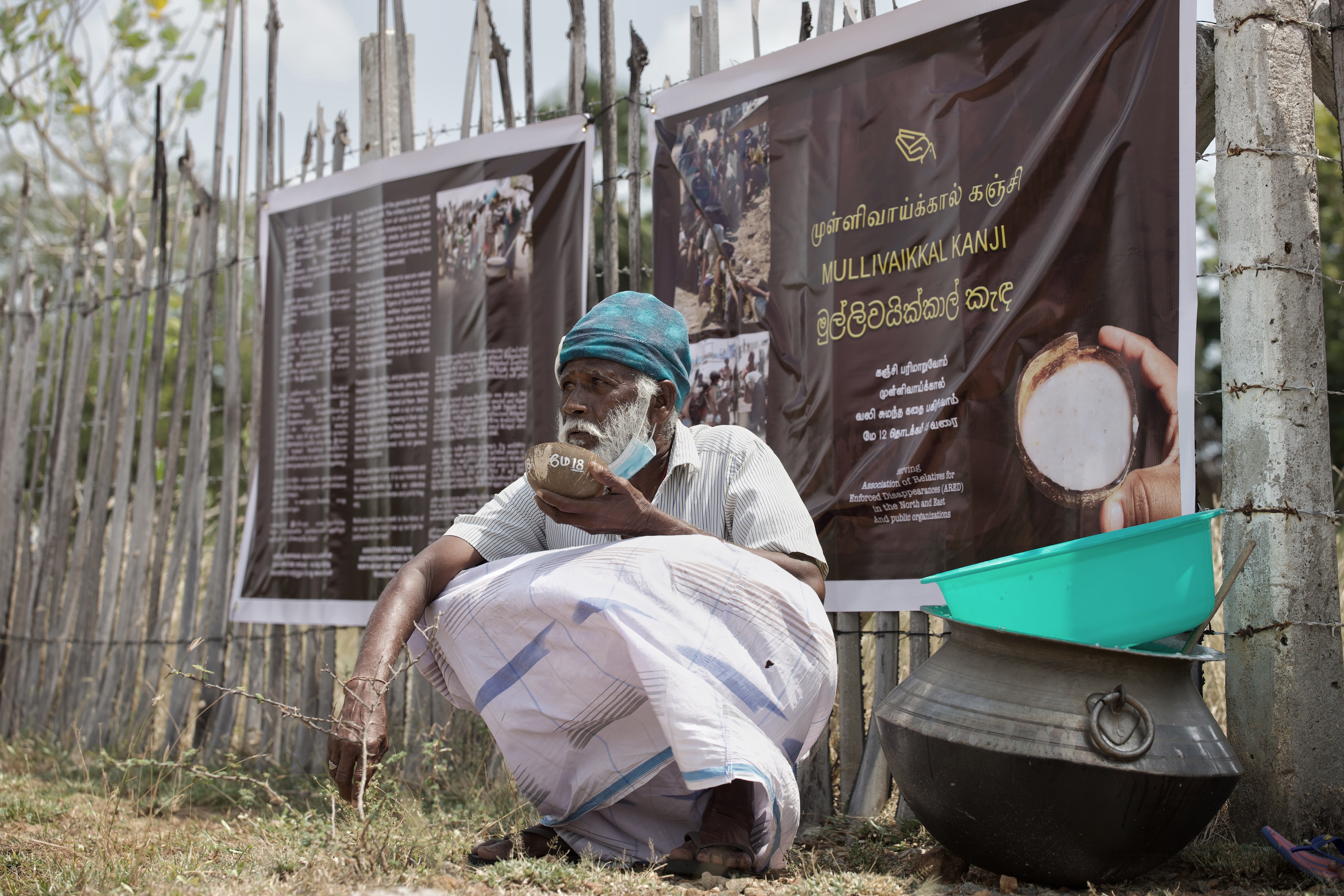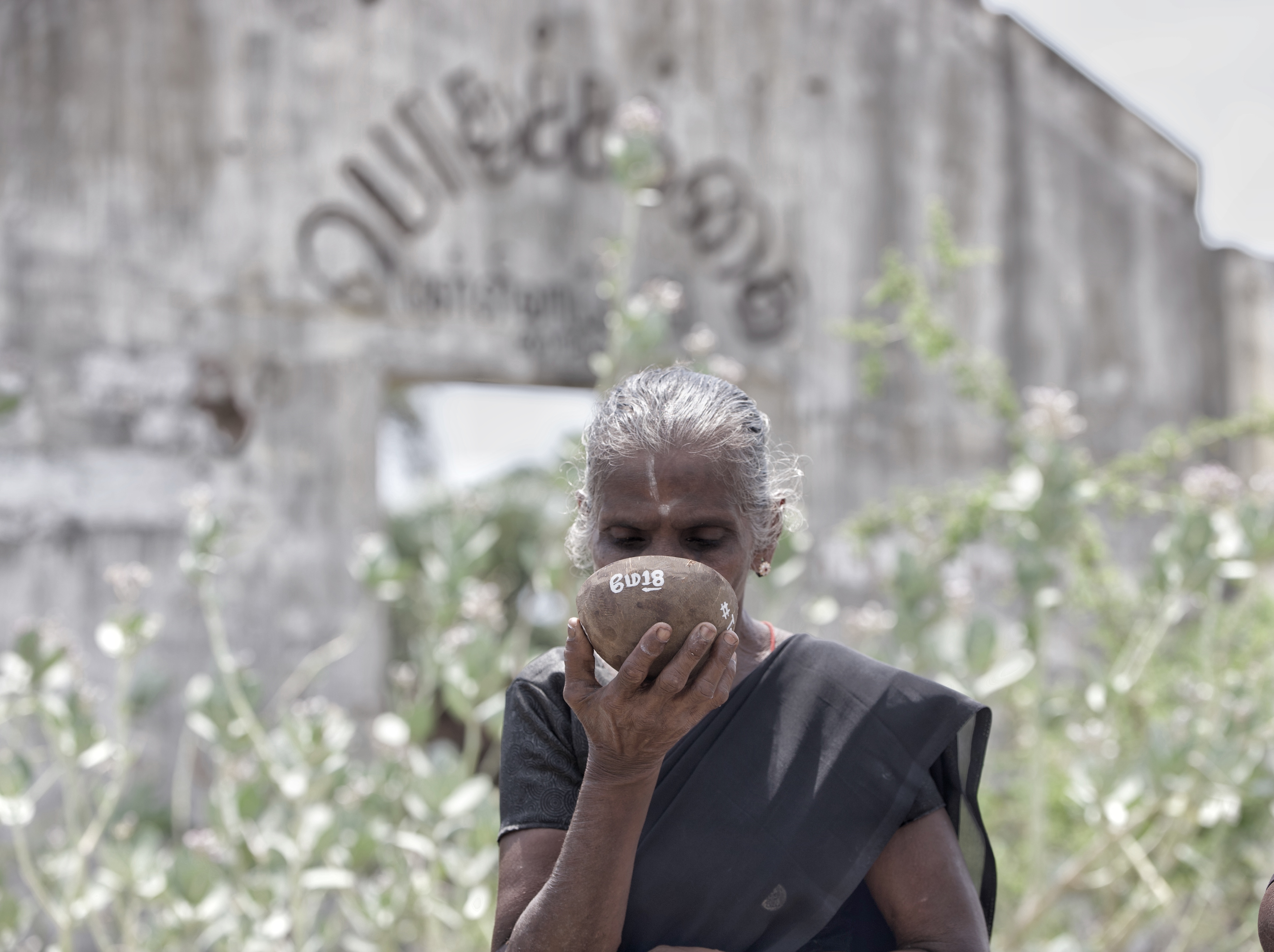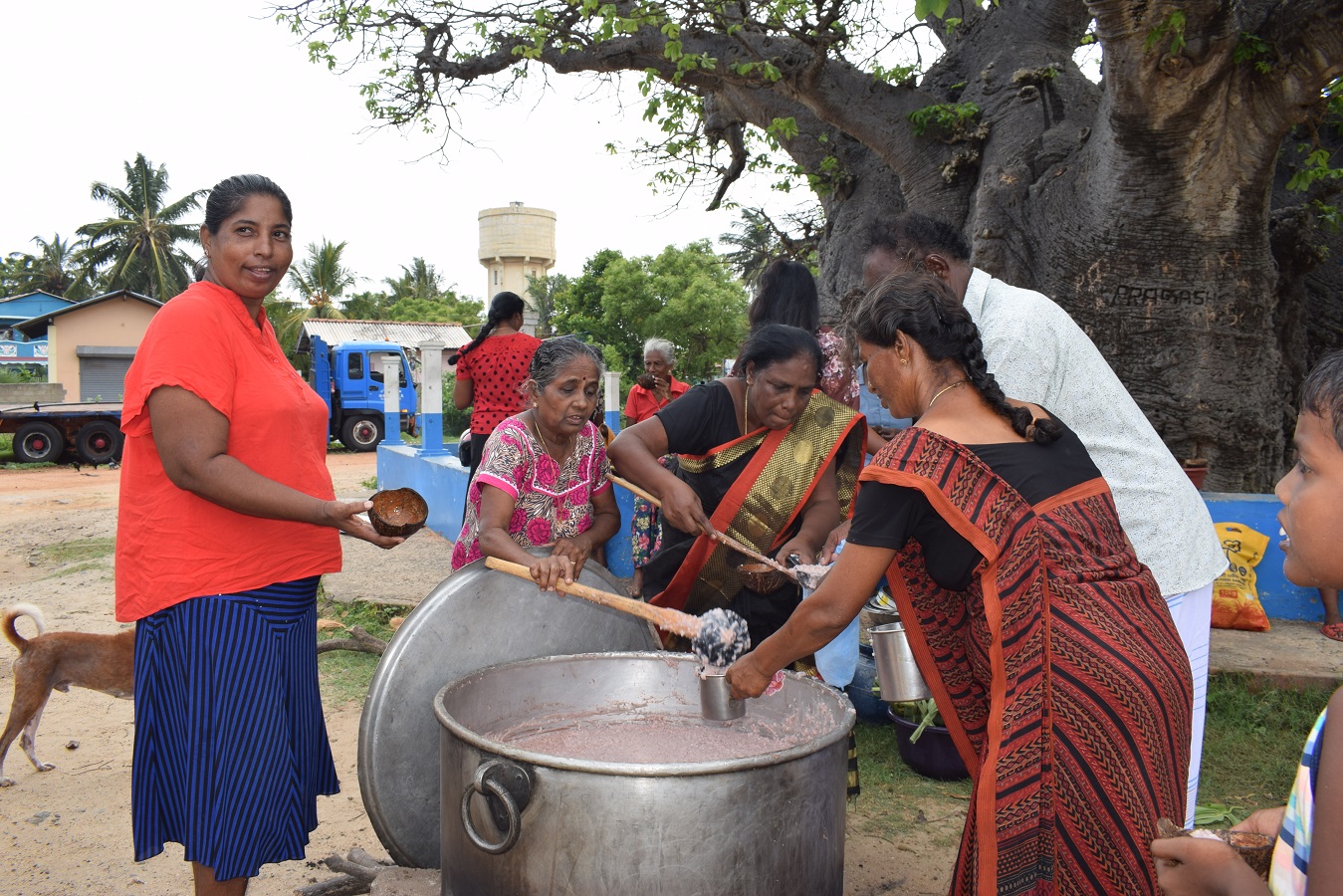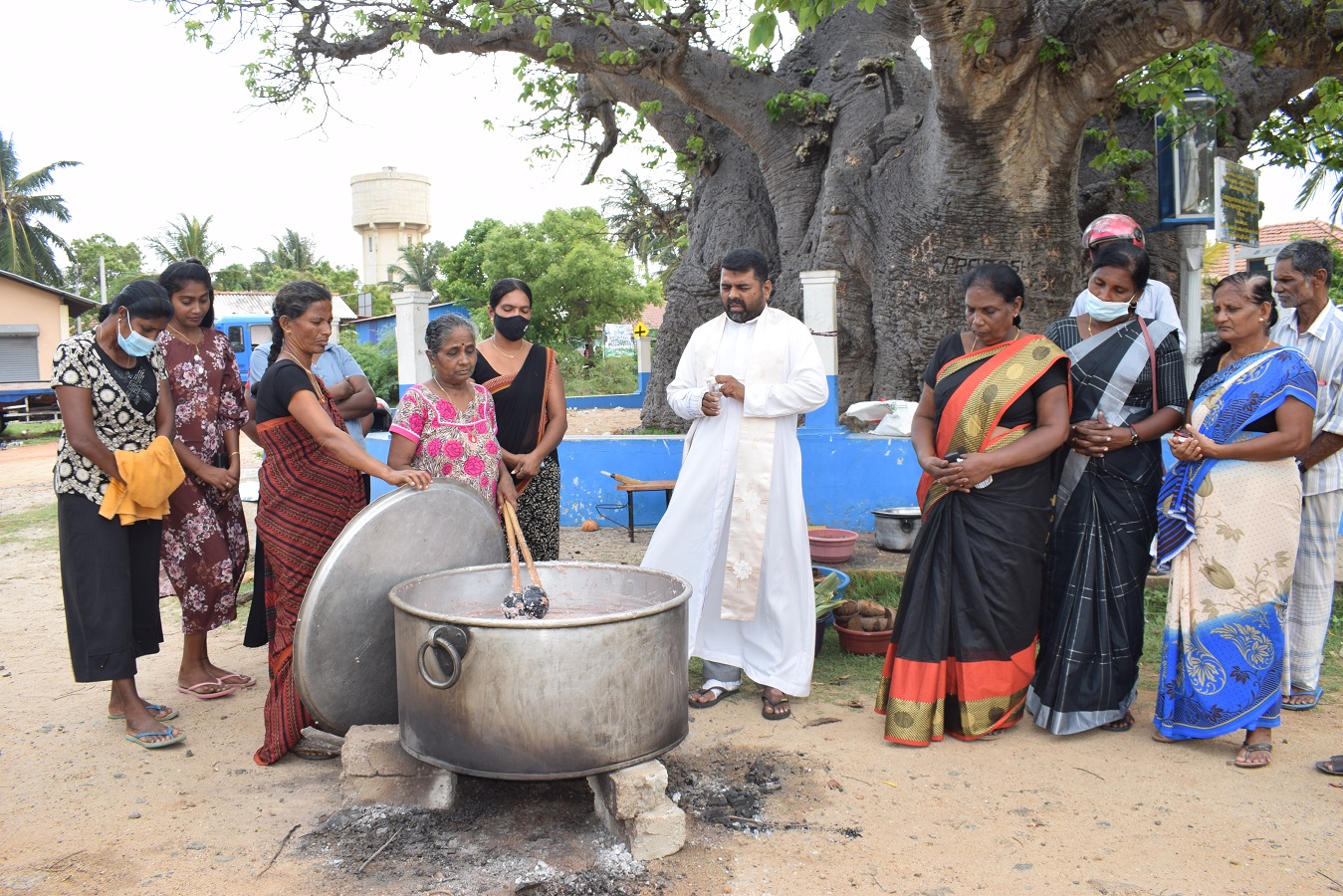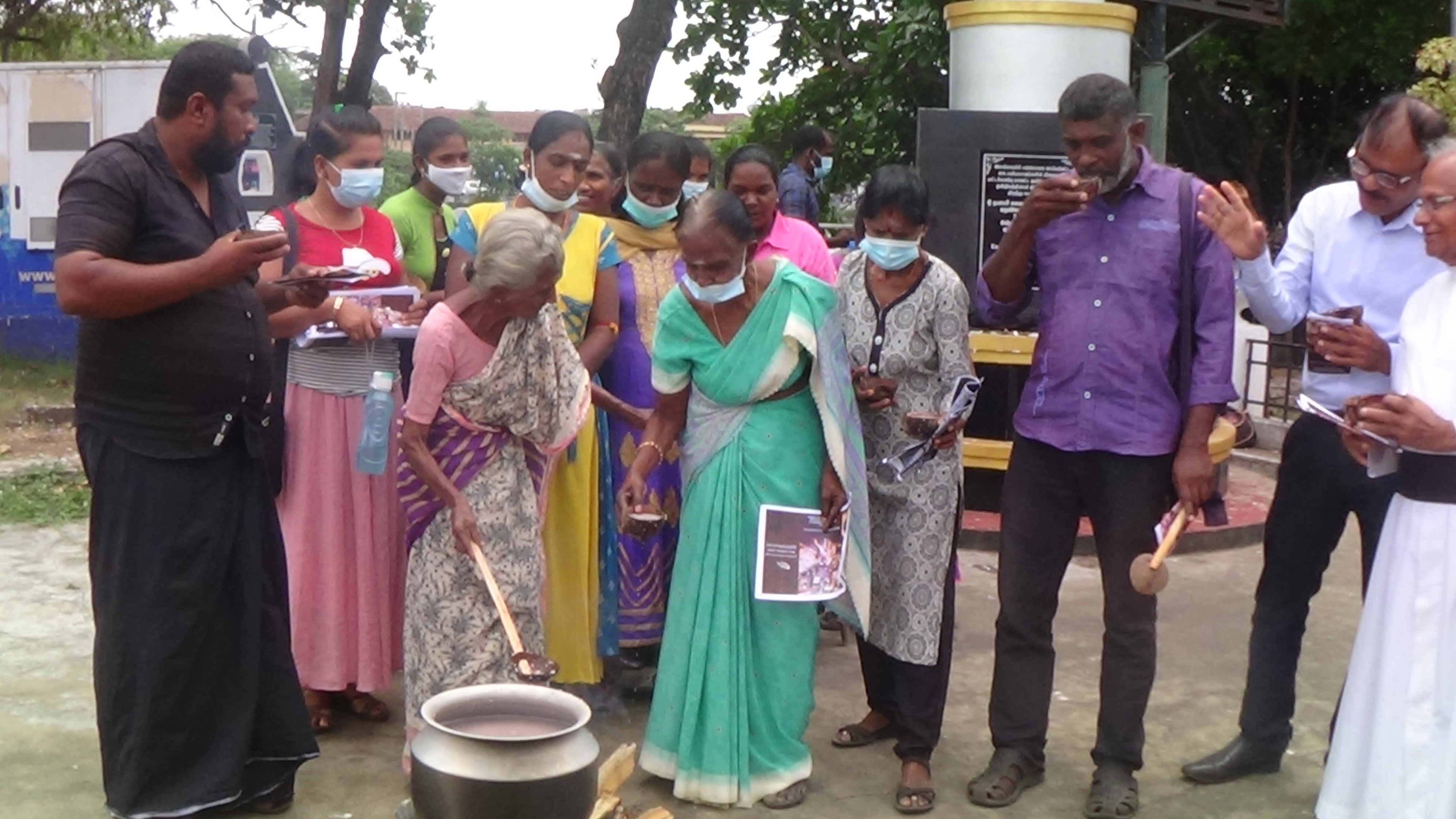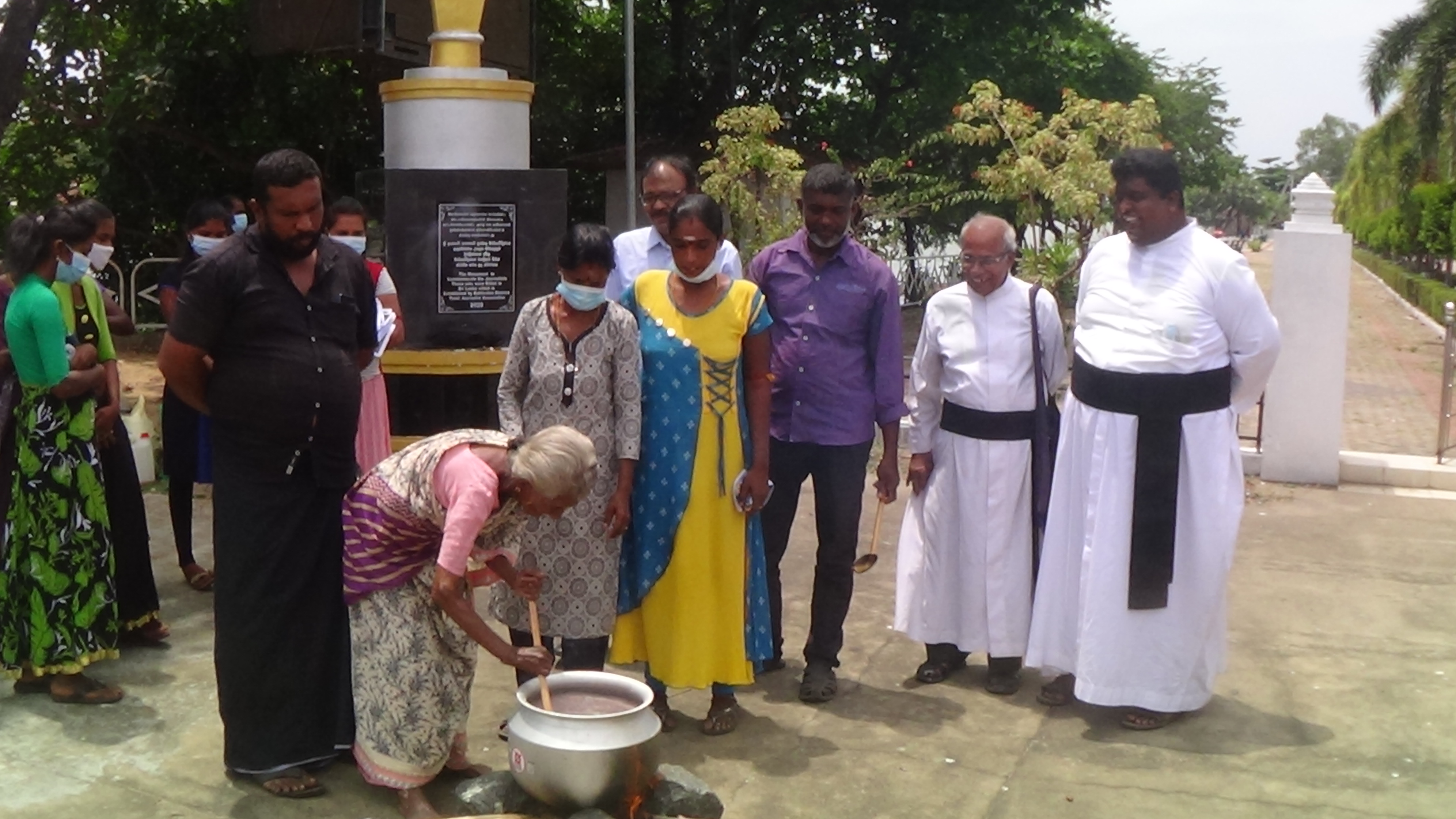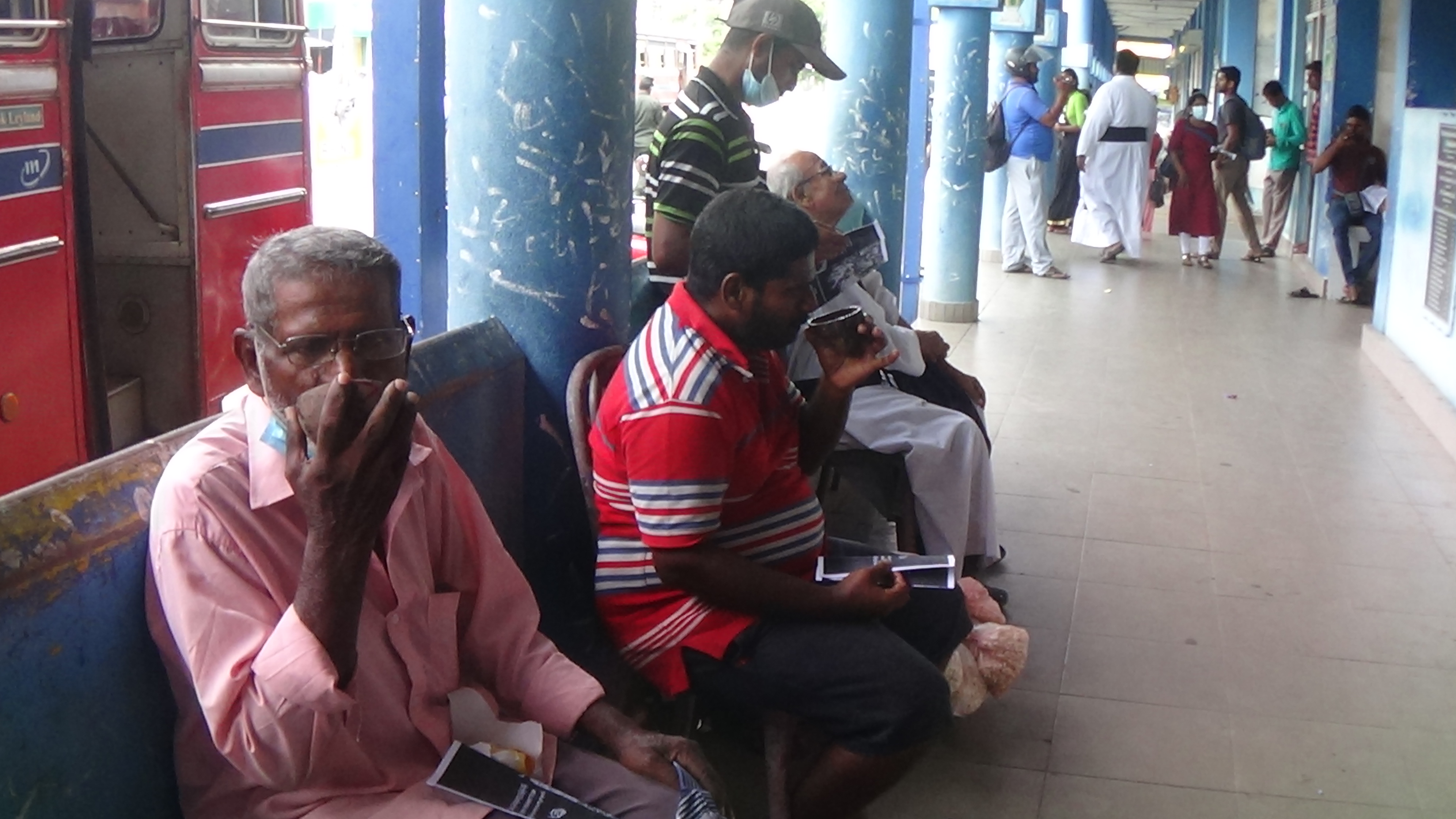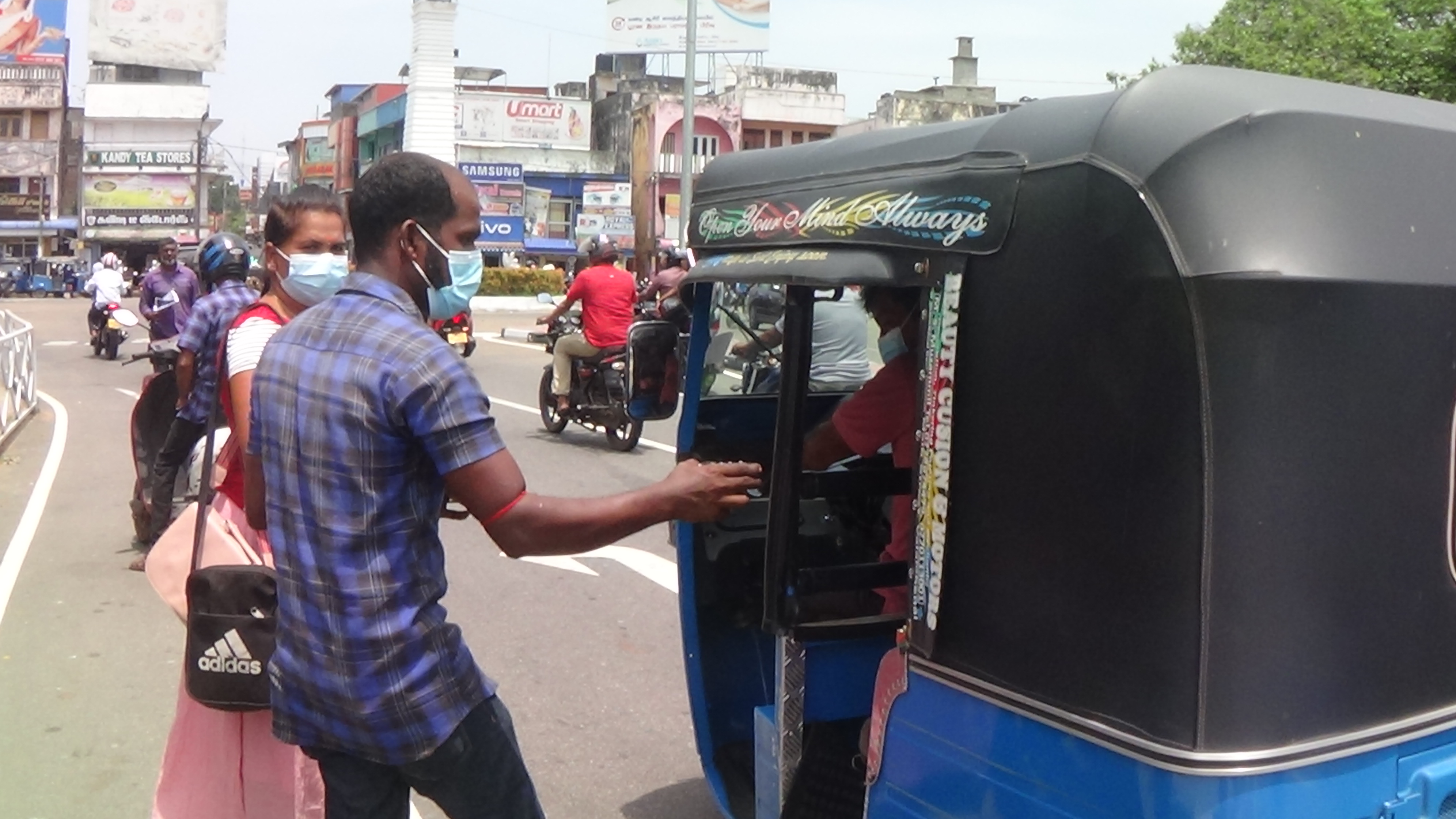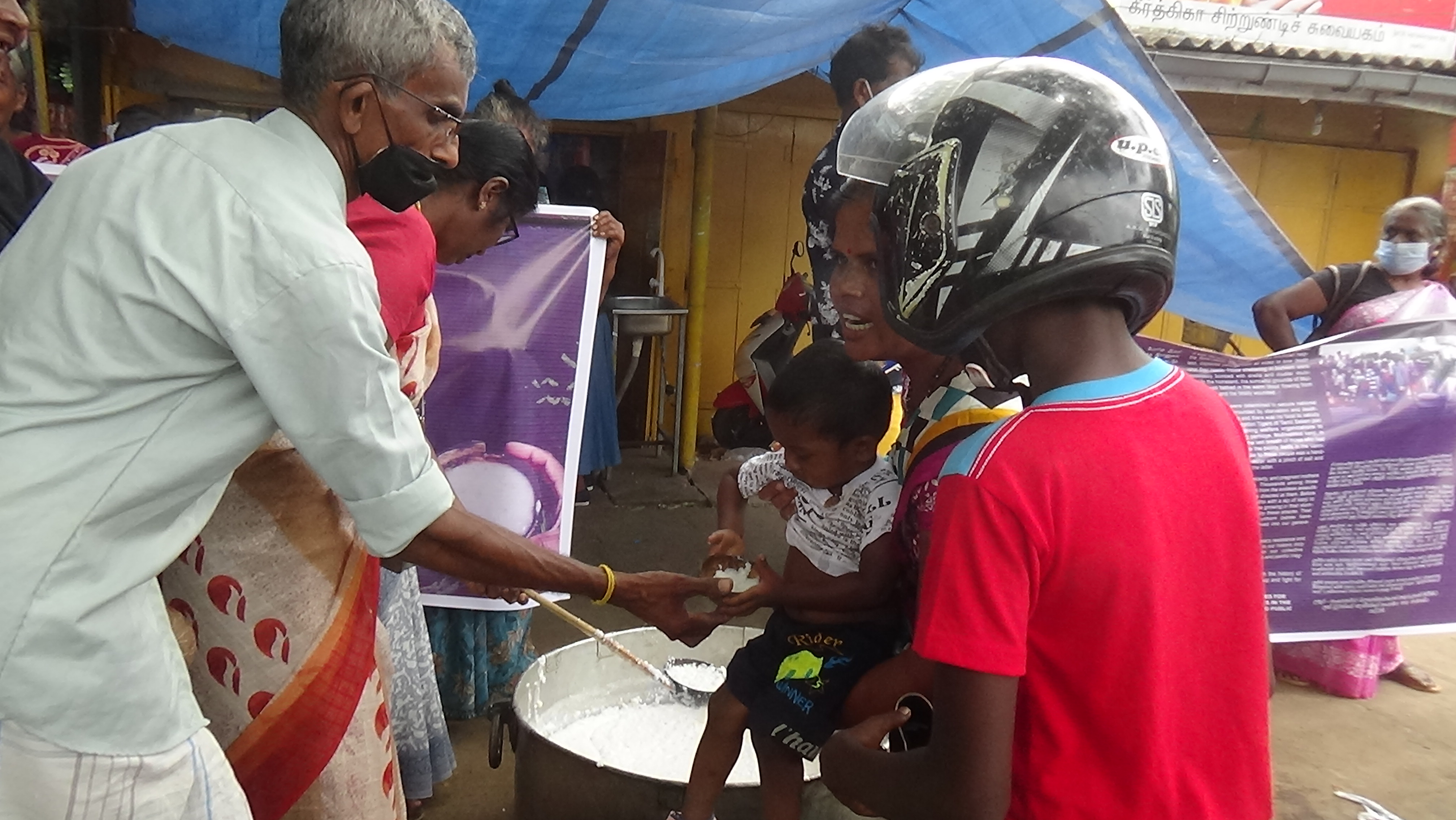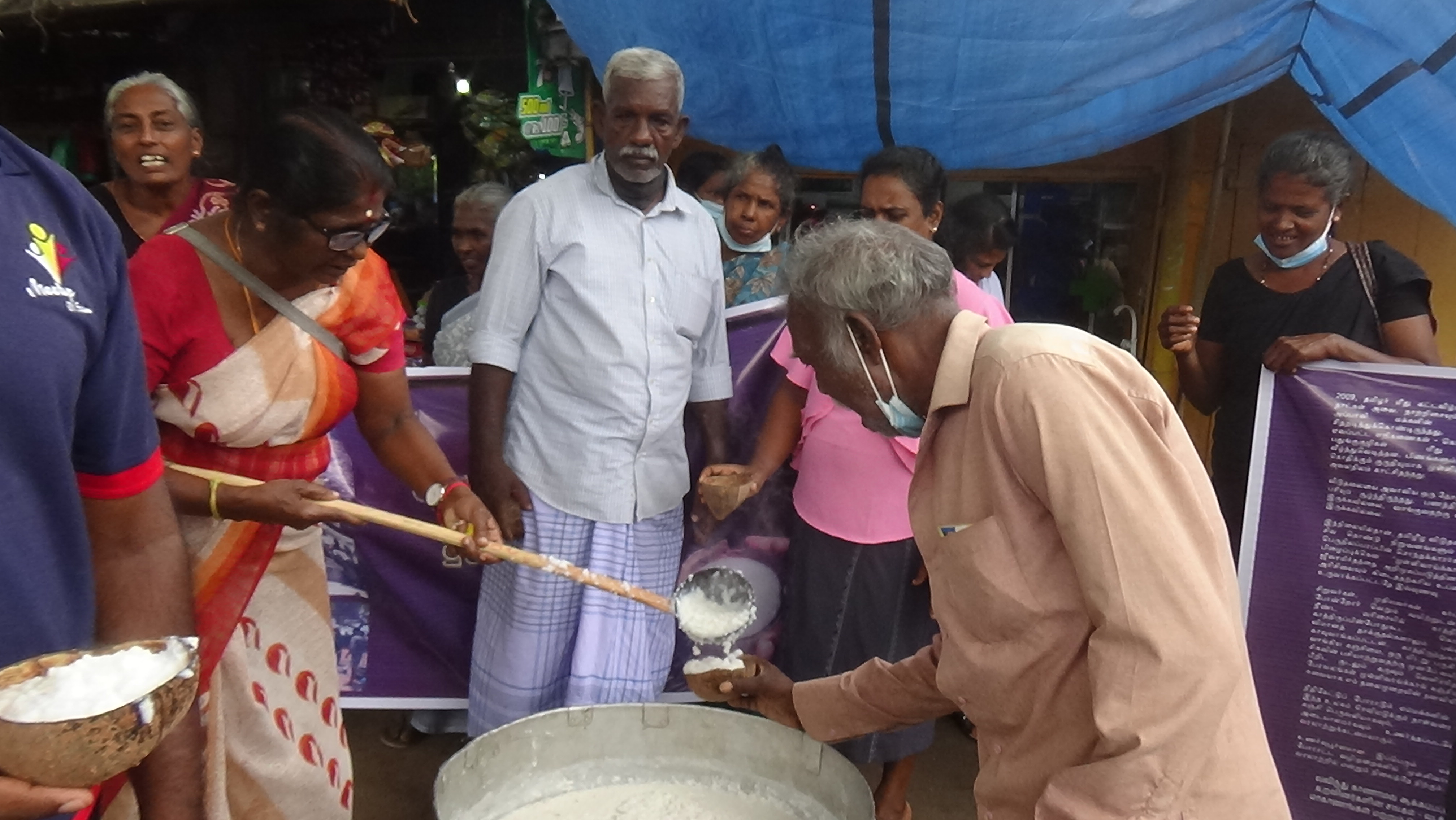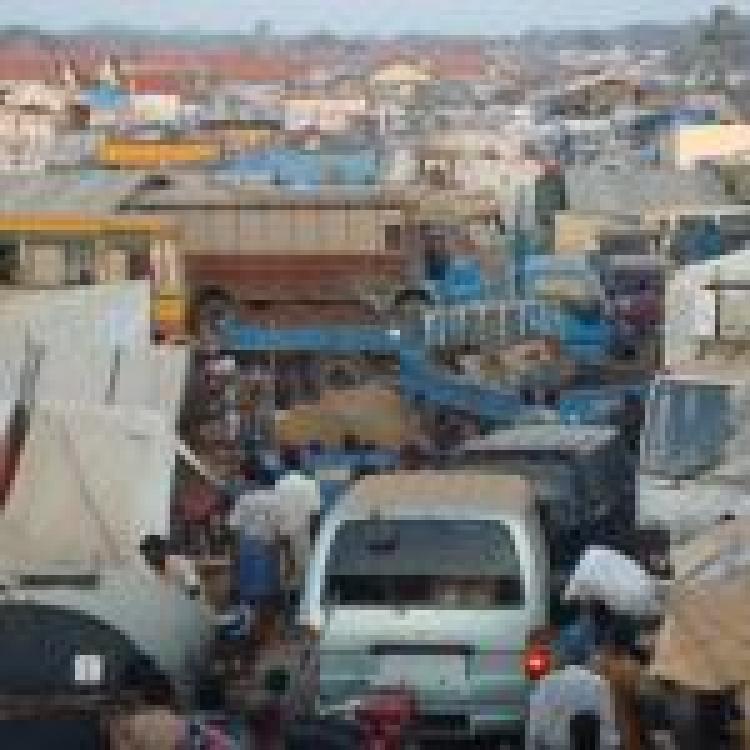Tamils across the North-East marked the first day of Mullivaikkal Remembrance Week by boiling and serving kanji to commemorate the tens of thousands of Tamils killed by the Sri Lankan state 13 years ago.
Kanji - a porridge of rice and water - was the only food available to Tamils trapped in the Sri Lankan government declared 'No Fire Zones' as food, medicines and other necessities were heavily restricted from entering the Vanni during the final phase of the armed conflict.
The Sri Lankan government denied the delivery of food into the conflict zones, to use starvation as a weapon of war. Even as Tamils stood in long queues to get a bowl of kanji, the Sri Lankan military continued their daily bombardment, slaughtering many.
As the organisers began making the kanji in Mullivaikkal, over 25 Sri Lankan police investigators arrived at the site and photographed those in attendance. Photographing participants at Tamil memorialisation activities is a common intimidation technique used by the state's forces to suppress such events in the North-East.
See photos from across the North-East below:
Mullivaikkal
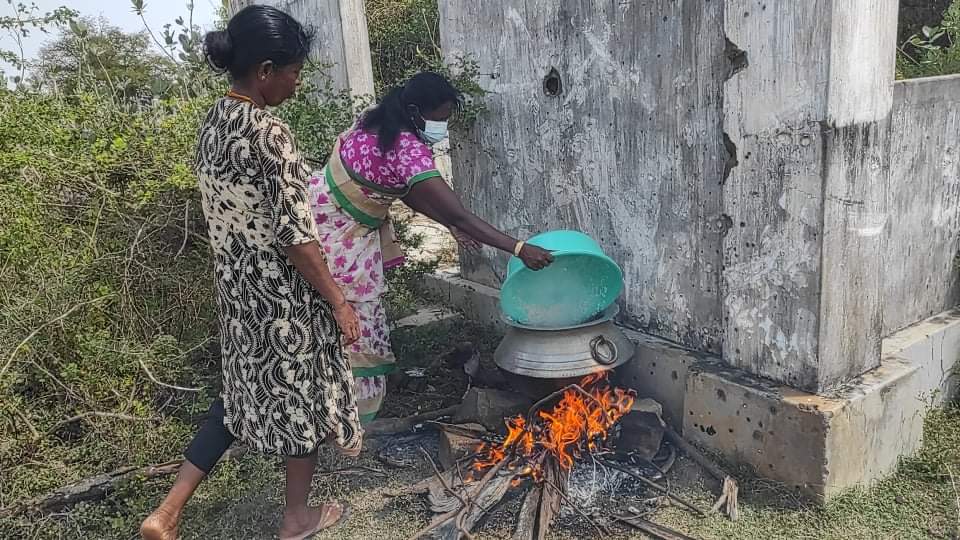
Nallur
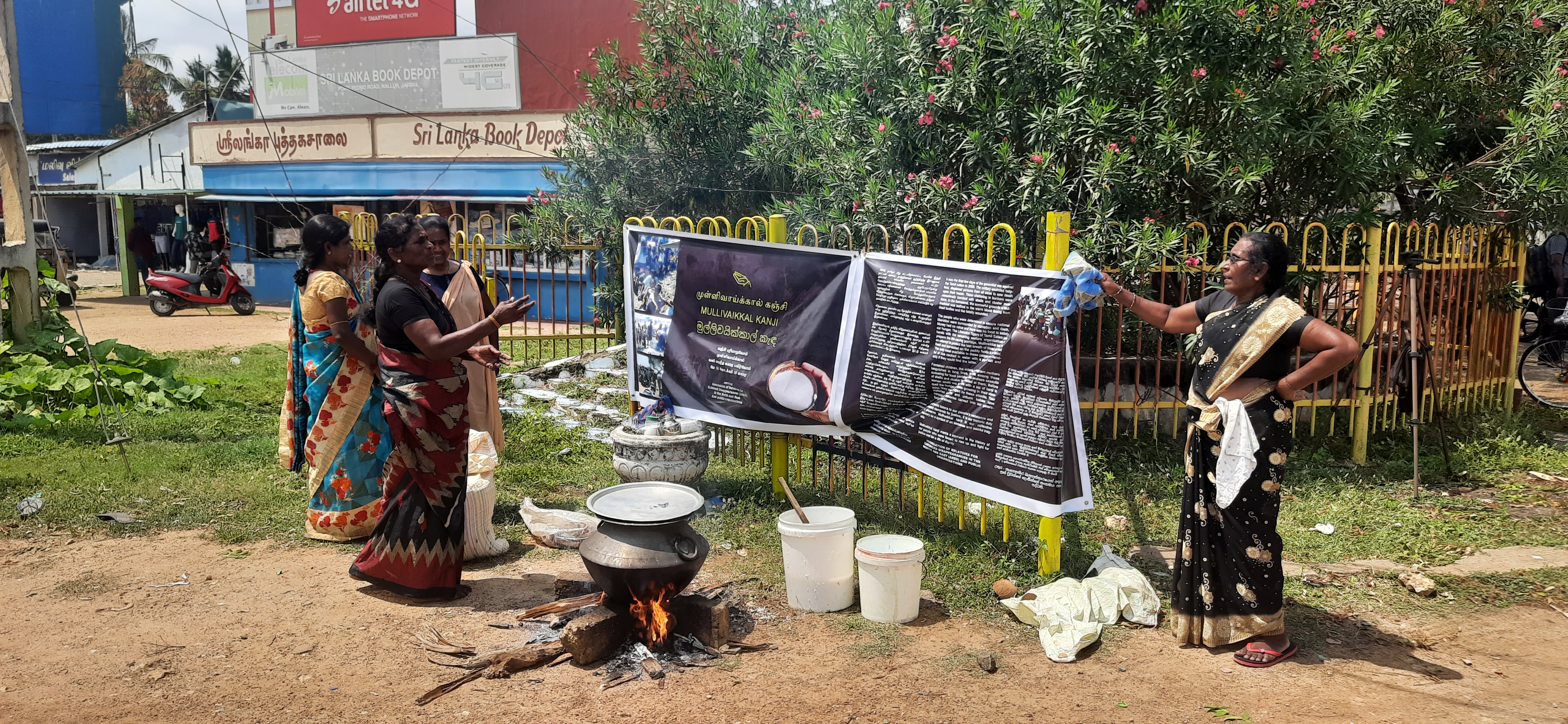
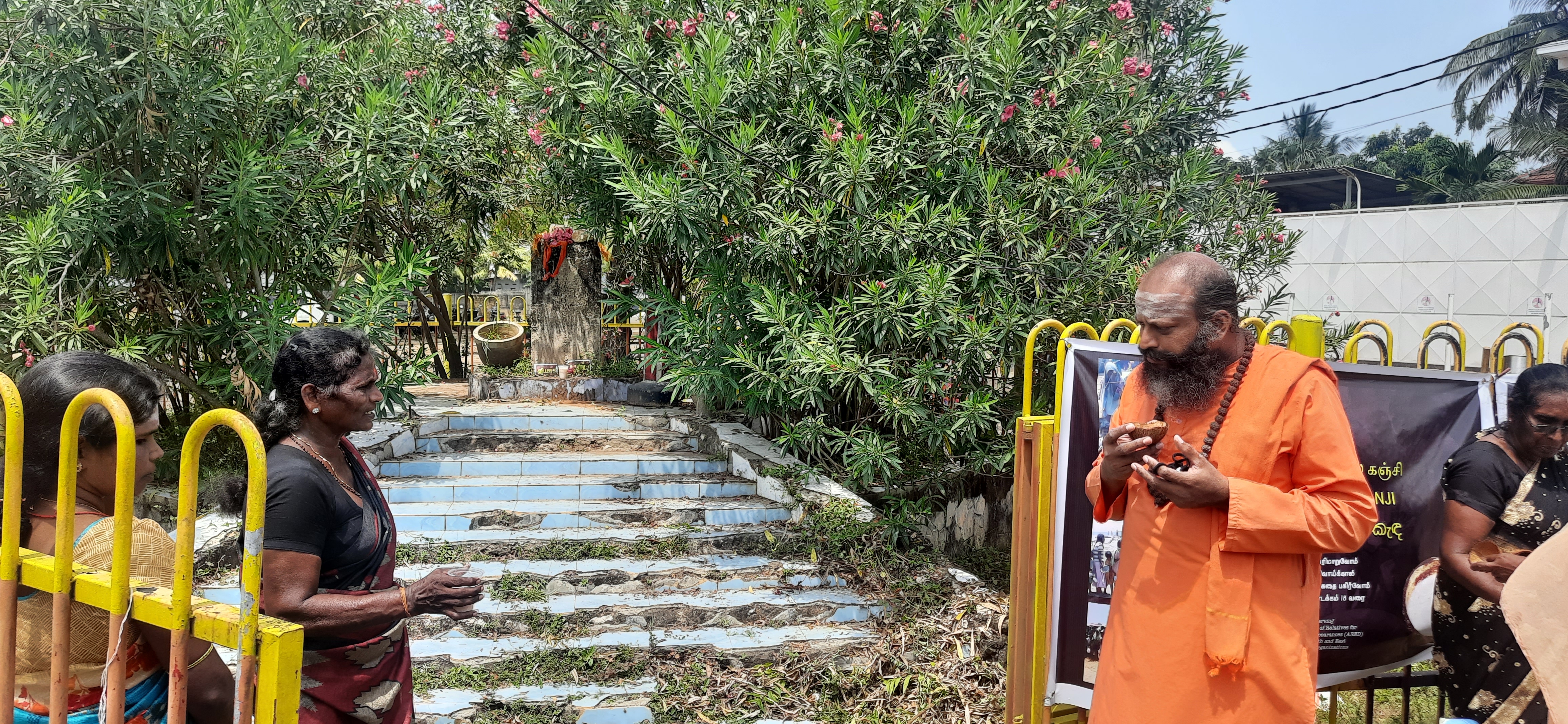
Mannar
Batticaloa
Kilinochchi
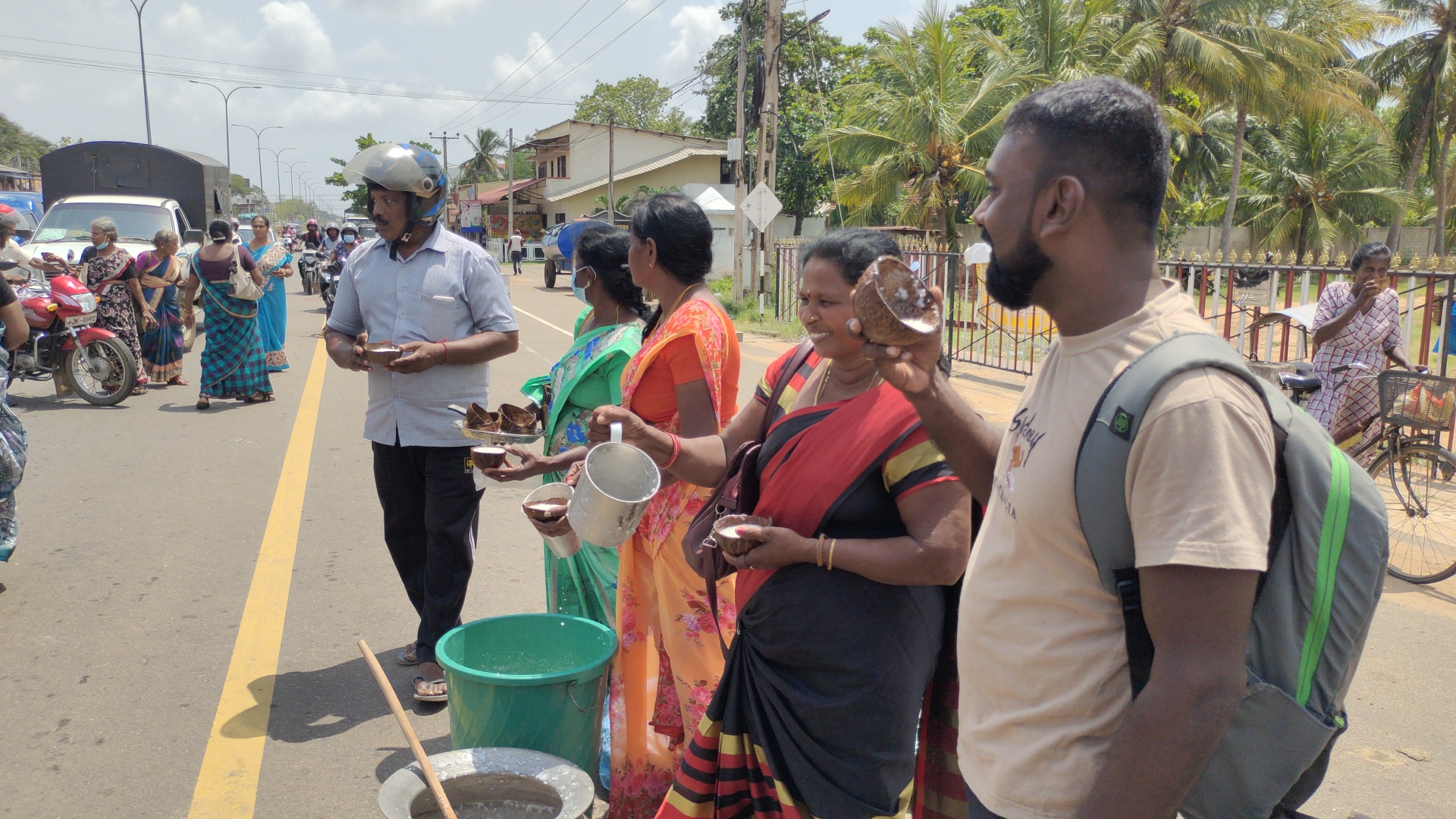
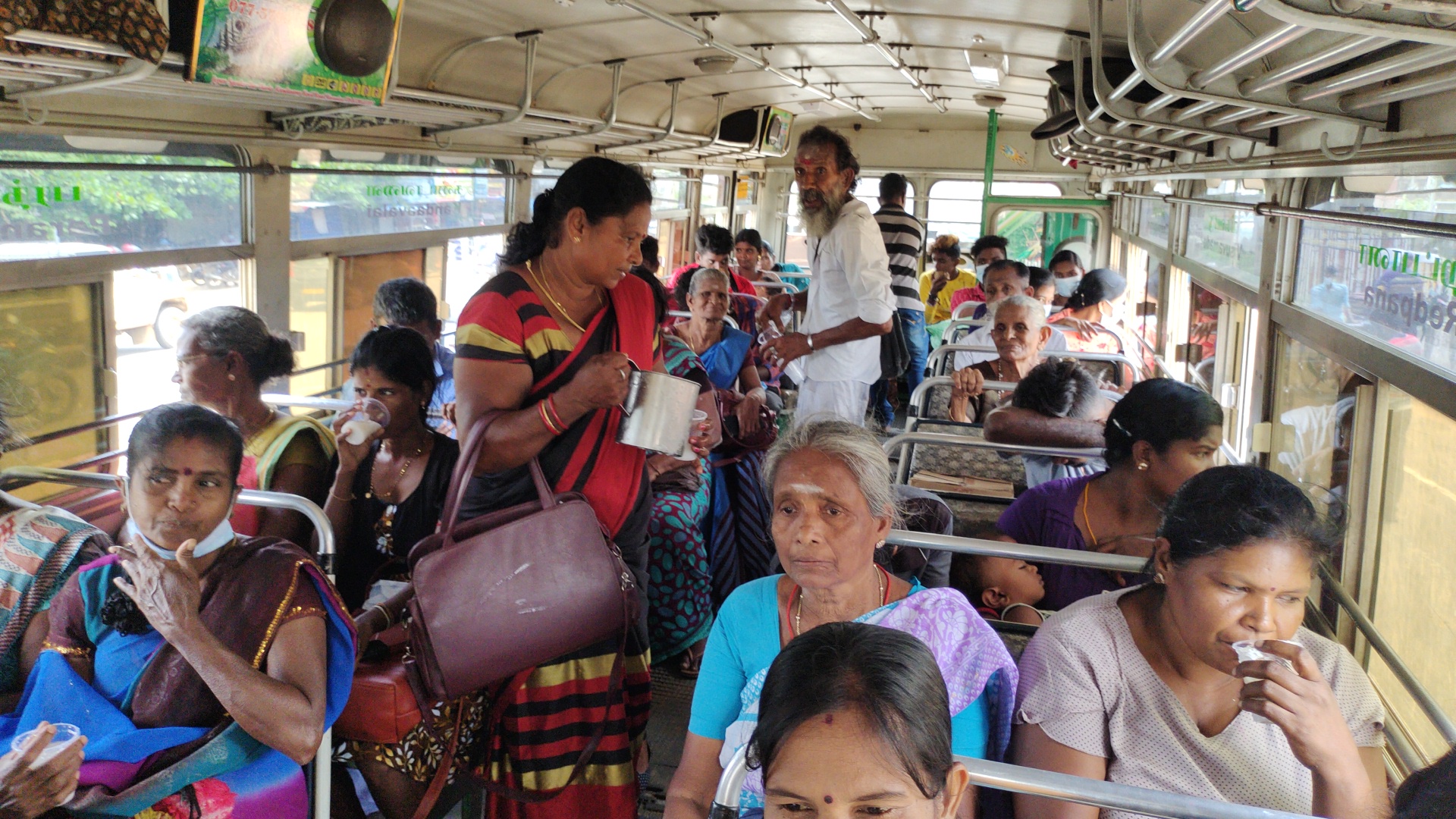
Vavuniya
Amparai
.jpeg)
.jpeg)
.jpeg)
.jpeg)

